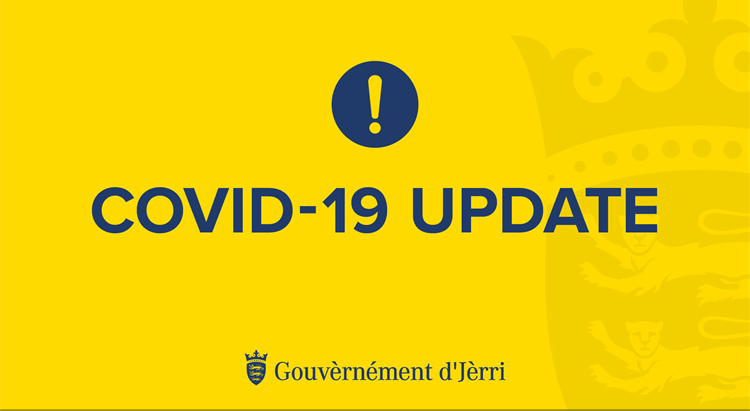16 November 2020

The Government of Jersey has today launched new public health measures and economic support packages to deal with COVID-19 through the winter.
Following an increase in community transmission, including in schools, more than 1600 Islanders are currently in self-isolation after being identified as direct contacts of a positive case of COVID-19.
The measures, which have been recommended by the Scientific and Technical Advisory Cell (STAC) and approved by the Council of Ministers, include:
- Enhanced border testing
- Increased testing at care homes, and of older students
- Requirements for older students to wear nose and mouth coverings in schools
- Earlier closure times for hospitality venues
- Reductions in the number of people who can attend informal gatherings, organised gatherings, and funerals
- Increased recruitment for testing and contact tracing staff
Alongside these public health measures, the Minister for Economic Development, Senator Lyndon Farnham, announced a scheme to support visitor accommodation providers. The scheme will subsidise up to 80% of fixed costs (for example, utilities, insurance, and the maintenance of equipment.)
As part of the COVID-19 Winter Economy Plan the Minister for Treasury and Resources, Deputy Susie Pinel, launched the COVID-19 Winter Economy Plan. This includes a revision to the existing Co-Funded Payroll Scheme, which will support eligible businesses with up to 60% of their employees’ wages.
Minister for Health and Social Services, Deputy Richard Renouf, also announced that he has lodged Regulations which would allow the Government of Jersey to introduce new legal requirements, including the wearing of face masks.
If agreed by members of the States Assembly, this could be debated on Tuesday 24 November.
Enhanced border testing
From Friday 20 November, all arrivals will be tested for COVID-19 on Days 0, 5 and 10. Green arrivals must isolate until a Day 0 negative result. Amber arrivals must isolate until a Day 5 negative result. Red arrivals must isolate until a Day 10 negative result.
Increased testing at care homes, and of older students
Care home residents will be tested regularly. Named visitors to care homes can also access testing.
Students in Years 11, 12 and 13 will be tested regularly.
Requirements for older students to wear nose and mouth coverings in schools
From Wednesday 18 November, all students in Years 11, 12 and 13 will be required to wear nose and mouth coverings when they are in areas outside the classroom, where social distancing is more difficult to manage.
Earlier closure times for hospitality venues
From Friday 20 November, hospitality businesses will be required to close at 10pm, and customers will have to leave the premises by 10.30pm.
Reductions in the number of people who can attend informal gatherings, organised gatherings, and funerals
From Friday 20 November:
- the number of people who can attend informal gatherings will reduce from 20 people to 10 people
- the number of people who can attend formal gatherings will reduce from 40 people to 20 people
- the number of people who can attend funerals will reduce from 80 people to 40 people
Increased recruitment for testing and contact tracing staff
Recruitment is underway for PCR testing and contact tracing staff. This will allow the Government to respond to increased travel during the holiday period, and continue to contact trace in order to contain clusters.
Lockdown criteria
The Chief Minister, Senator John Le Fondré, has also moved to reassure Islanders following repeated rumours of a lockdown. The Chief Minister said: “Our winter strategy is very clear: the decision to lockdown normal life, the economy, and travel will be the last resort of the Government.
“We intend to use all the measures we have available to us to avoid a lockdown. The measures we have announced today demonstrate our commitment to avoiding a lockdown.
“A lockdown will only become necessary if we see uncontained transmission across the Island; if contract tracing becomes significantly less effective at isolating the virus; if we recieve advice from our Deputy Medical Officer of Health, Dr Ivan Muscat, and STAC that we need a lockdown to bring infection rates under control; and, evidence shows that unless we act, the capacity of intensive care could be compromised.
“If a lockdown was deemed necessary, Ministers would first consider whether a short ‘circuit break’ would be an alternative to a prolonged closure. Any decision would be communicated to Islanders in good time, through official channels.”